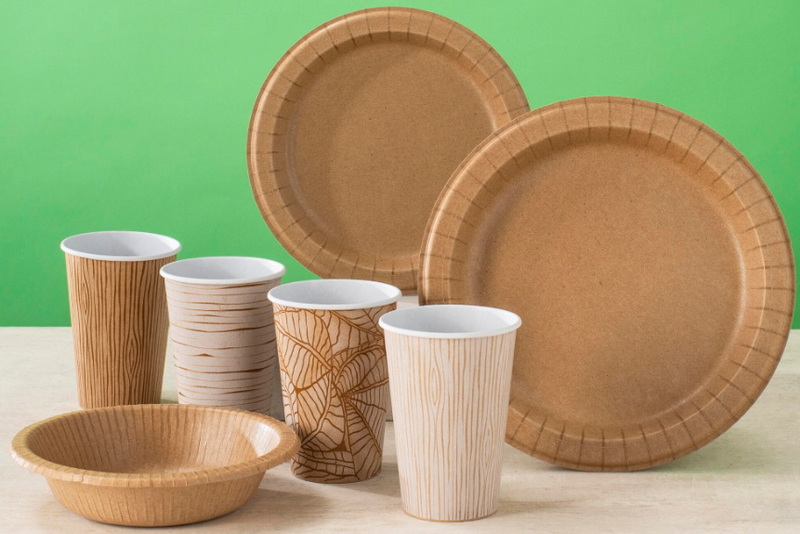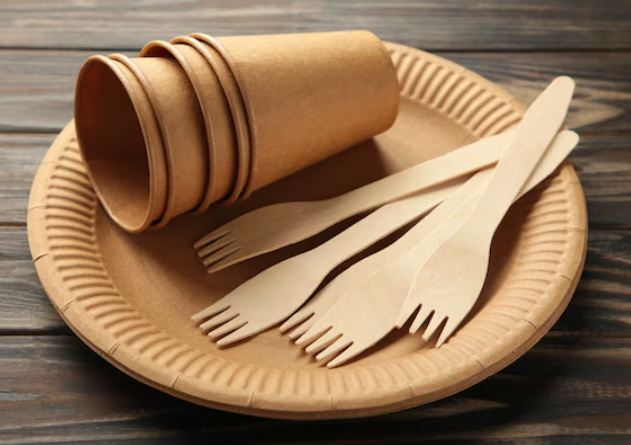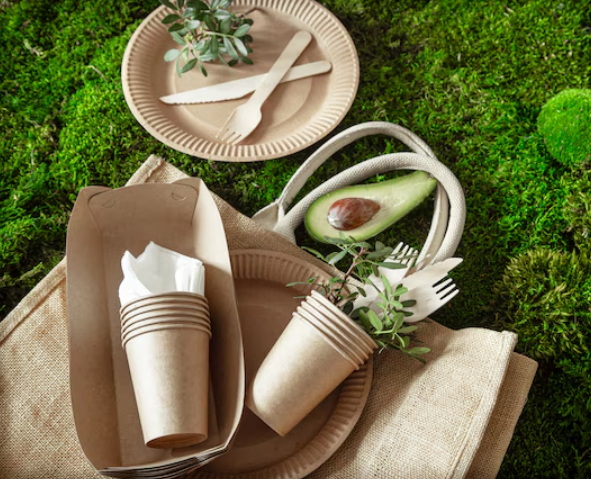
Content Menu
● Introduction to Eco Disposable Tableware
● Benefits of Eco Disposable Tableware
>> 1. Environmental Impact:
>> 2. Health Benefits:
>> 3. Operational Flexibility:
>> 4. Customer Appeal:
● Challenges of Eco Disposable Tableware
>> 1. Higher Initial Cost:
>> 2. Availability and Accessibility:
>> 3. Composting Infrastructure:
● Practicality for Daily Use
>> 1. Convenience:
>> 2. Sustainability:
>> 3. Cost-Effectiveness:
● Making Eco Disposable Tableware More Sustainable
>> 1. Choose Compostable Options:
>> 2. Reduce Single-Use Plastics:
>> 3. Support Sustainable Brands:
>> 4. Participate in Composting Programs:
>> 5. Educate Others:
● Innovations in Eco Disposable Tableware
>> Impact on Consumer Behavior
● Role of Governments and Policies
● Conclusion
● FAQs
>> 1. What Materials Are Used to Make Eco Disposable Tableware?
>> 2. How Long Does Eco Disposable Tableware Take to Decompose?
>> 3. Is Eco Disposable Tableware More Expensive Than Traditional Options?
>> 4. Can Eco Disposable Tableware Be Recycled?
>> 5. How Can I Make Eco Disposable Tableware More Sustainable in My Daily Life?
In recent years, the world has witnessed a significant shift towards sustainability, with consumers increasingly opting for eco-friendly products to reduce their environmental footprint. One area where this trend is particularly evident is in the use of tableware, with eco disposable tableware emerging as a popular alternative to traditional plastic disposables. But is eco disposable tableware a viable option for daily use? Let's delve into the benefits, challenges, and practicality of using eco-friendly disposable tableware in our daily lives.

Introduction to Eco Disposable Tableware
Eco disposable tableware is made from sustainable materials such as bamboo, sugarcane bagasse, cornstarch, and palm leaves. These materials are biodegradable or compostable, significantly reducing the environmental impact compared to traditional plastic tableware, which can take centuries to decompose. The production process for eco-friendly tableware often involves less energy and fewer chemicals, further enhancing its eco-friendly credentials.
Benefits of Eco Disposable Tableware
1. Environmental Impact:
- Reduced Waste: Eco-friendly disposables break down naturally, reducing landfill waste and pollution.
- Lower Carbon Footprint: Made from renewable resources, they require less energy for production.
2. Health Benefits:
- Chemical-Free: Unlike traditional plastics, eco-friendly tableware is free from harmful chemicals like BPA and phthalates.
3. Operational Flexibility:
- Lightweight and Durable: Suitable for various service settings, from casual dining to outdoor events.
4. Customer Appeal:
- Eco-Conscious Branding: Attracts environmentally aware consumers, enhancing brand image.
Challenges of Eco Disposable Tableware
Despite its benefits, eco disposable tableware also presents some challenges:
1. Higher Initial Cost:
- While eco-friendly disposables may be more expensive upfront, they offer long-term savings through reduced waste management costs and potential tax incentives.
2. Availability and Accessibility:
- Not all regions have easy access to eco-friendly disposable tableware, which can limit its adoption.
3. Composting Infrastructure:
- Effective decomposition requires proper composting facilities, which are not universally available.
Practicality for Daily Use
For daily use, eco disposable tableware can be practical if you consider the following:
1. Convenience:
- Offers quick cleanup and ease of use, ideal for busy households or events.
2. Sustainability:
- Aligns with environmental values, contributing to a greener lifestyle.
3. Cost-Effectiveness:
- While initially more expensive, it can lead to long-term savings and reduced waste disposal costs.

Making Eco Disposable Tableware More Sustainable
To enhance the sustainability of eco disposable tableware, consider these strategies:
1. Choose Compostable Options:
- Opt for materials like sugarcane bagasse or bamboo that decompose quickly.
2. Reduce Single-Use Plastics:
- Limit the use of plastic items and switch to reusable alternatives when possible.
3. Support Sustainable Brands:
- Encourage companies that prioritize eco-friendly manufacturing and packaging.
4. Participate in Composting Programs:
- Utilize community composting initiatives to ensure proper disposal.
5. Educate Others:
- Share the benefits of eco-friendly tableware with friends and family to promote wider adoption.
Innovations in Eco Disposable Tableware
The industry is continuously innovating to improve the performance and sustainability of eco-friendly tableware. For example, some companies are developing bioplastics made from renewable biomass sources like corn starch or sugarcane. These bioplastics are biodegradable and compostable, offering a more sustainable alternative to traditional plastics.
Impact on Consumer Behavior
The shift towards eco disposable tableware is also influencing consumer behavior. More consumers are now prioritizing sustainability when making purchasing decisions, driving demand for eco-friendly products. This trend is particularly evident among younger generations who are more environmentally conscious.
Role of Governments and Policies
Governments play a crucial role in promoting the use of eco disposable tableware through policies and regulations. For instance, some cities have banned single-use plastics, encouraging businesses to adopt eco-friendly alternatives. Additionally, governments can provide incentives for companies that invest in sustainable manufacturing processes.
Conclusion
In conclusion, eco disposable tableware is indeed a viable option for daily use, offering a sustainable alternative to traditional plastics. While it presents some challenges, its benefits in terms of environmental impact, health, and operational flexibility make it an attractive choice for both consumers and businesses. By adopting eco-friendly disposable tableware, we can contribute to a cleaner, greener future.

FAQs
1. What Materials Are Used to Make Eco Disposable Tableware?
Eco disposable tableware is made from sustainable materials such as bamboo, sugarcane bagasse, cornstarch, and palm leaves. These materials are biodegradable or compostable, reducing environmental impact.
2. How Long Does Eco Disposable Tableware Take to Decompose?
The decomposition time varies depending on the material and composting conditions. For example, sugarcane bagasse decomposes in 60-90 days in industrial facilities, while palm leaves take about 3-4 months.
3. Is Eco Disposable Tableware More Expensive Than Traditional Options?
Yes, eco-friendly disposable tableware is generally more expensive upfront. However, it offers long-term savings through reduced waste disposal costs and potential tax incentives for sustainability.
4. Can Eco Disposable Tableware Be Recycled?
Eco disposable tableware is not suitable for traditional recycling due to its organic nature. Instead, it should be composted to return nutrients to the soil.
5. How Can I Make Eco Disposable Tableware More Sustainable in My Daily Life?
To make eco disposable tableware more sustainable, choose compostable options, reduce single-use plastics, support sustainable brands, and participate in composting programs.

















